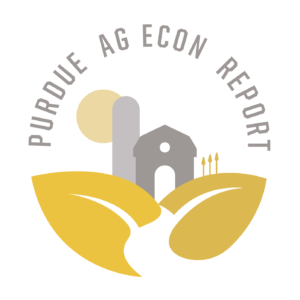Some Essential Truths About Human Economic Behavior
August 16, 1991
PAER-1991-12
Author: Don Paarlberg. Professor Emeritus
Note: Volumes have been written on how humans behave. Here Dr. Paarlberg summarizes his most important observations regarding our economic behavior.
- Most people are forgiving, so it is best not to fear failure, financial, social, or other. If you fail, usually you will be forgiven- unless you pull other people down with you. Most people are conservative, so the odds are weighted in favor of the venturesome. If you go to bat, you may strike out – but you may get a hit! If you fail to go to the plate, your batting average is not a thousand, it is zero. Demonstrate to yourself that it is possible to survive failure. Recognize that you are fallible. Acknowledged failure (not self-flagellation) generates a warmth in interpersonal relationships. You will be amazed at how forgiving people are. Frustration is not failure; low aim is failure.
- But some people are vindictive. You don’t know in advance who these people are. So take care not to impugn a person’s motives. Don’t cut off anyone’s line of retreat. If you do, there are some people who will fight you with every weapon at their command. There is no point in making your battles that rough. This counsel is good not only for things economic but also as a matter of ethics.
- Opportunity costs should be governing. Before you buy that new combine, think about what you might otherwise do with the money. Remember Ben Franklin’s story about how, as a boy with a few pennies in his pocket, he bought a toy whistle, which to him was the greatest thing in the world. After blowing it a few times, he tired of it. His money gone and the novelty of his toy worn off, he concluded that he had paid too much for his whistle.
- Human nature has a large element of continuity. When you hear of a proposal, ask yourself this question: “For this to succeed, does it take a fundamental change in human nature?” If it does, look on the proposal with misgiving. Some individuals experience fundamental change; but for the society as a whole, such changes come only by very small increments.
- The principle of diminishing returns applies to money. Except for the miserly and avaricious, a dollar added to the income of a person who is already wealthy has less utility to him than an incremental dollar adds to the utility of one who is poor. Anyone who has seen a hungry man will confirm this fact. Other things being equal, the less dispersion of wealth between rich and poor, the greater is the total utility that accrues to the country’s people. Remember this when you pay taxes to increase opportunities for those on the bottom rungs of the economic ladder. You can’t take it with you. There is little merit in being the richest person in the cemetery.
